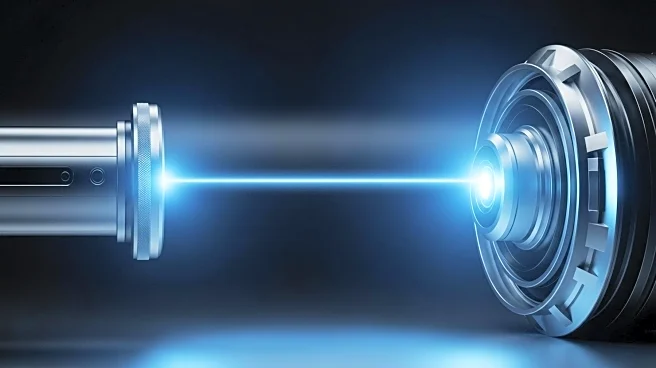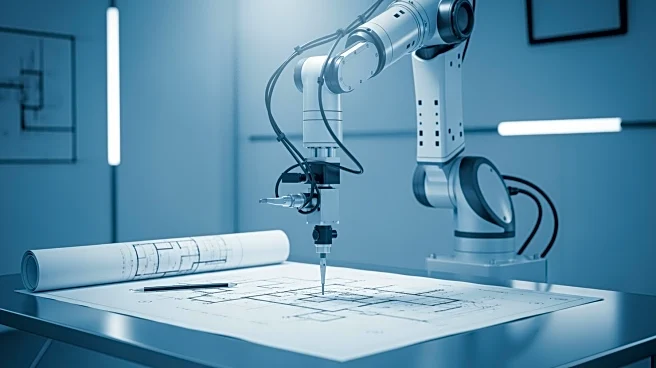What's Happening?
Physicists from MIT and the University of Texas at Arlington have proposed a concept for a neutrino laser, a device that could significantly enhance the study of neutrinos. Neutrinos, often referred to as 'ghost particles' due to their elusive nature, are abundant yet difficult to study because they rarely interact with matter. The proposed neutrino laser would involve cooling rubidium-83 atoms to form a Bose-Einstein Condensate, allowing for synchronized decay and the production of a concentrated neutrino beam. This development could revolutionize the way neutrinos are studied, providing a more efficient method for their detection and analysis.
Why It's Important?
The development of a neutrino laser could have profound implications for physics and our understanding of the universe. Neutrinos hold the potential to unlock mysteries related to dark matter and the fundamental forces of nature. By enabling more precise studies of these particles, the neutrino laser could lead to breakthroughs in particle physics and cosmology. Additionally, the technology could pave the way for new communication methods that utilize neutrinos' ability to pass through matter, offering potential applications in secure communications and underground exploration.
What's Next?
The next steps involve experimental validation of the neutrino laser concept. If successful, this could lead to the development of practical applications for neutrino detection and communication. Researchers will likely focus on refining the technology and exploring its potential uses in various scientific and industrial fields. The success of this project could also inspire further research into other unconventional particle manipulation techniques, expanding the horizons of particle physics.










